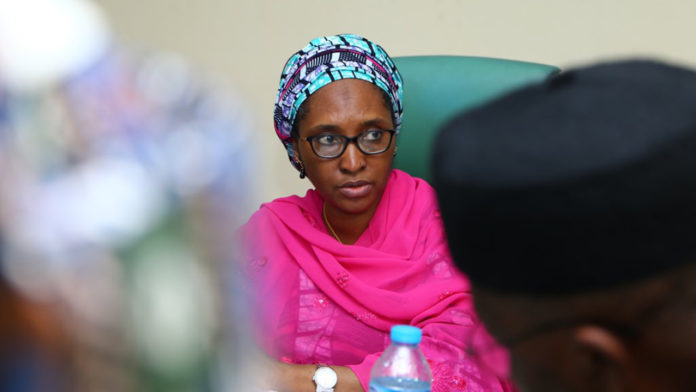In what may be termed the first soothing news of 2020, the Minister of Finance, Budget and National Planning, Mrs Zainab Ahmed, on Monday reiterated Federal Government’s plan to lift 100 million Nigerians out of poverty this year, in line with a pledge earlier made by President Muhammadu Buhari in 2019.
Ahmed, who made the disclosure in a television programme said the fulcrum of achieving that goal would be to provide sufficient enabling environment for small businesses across Nigeria.
She said: “President Muhammadu Buhari has directed that we must pull 100 million Nigerians out of poverty and that is our major focus. Based on the president’s directives, we want to move fast to make the kind of change the president wanted in the country.
“In 2020, we want to move very fast because we realized that going at the steady rate we are doing is not going to make the kind of change that the president has directed must happen.
“So, we have to make sure that we are creating more jobs and reducing unemployment, and pulling as many Nigerians as possible out of poverty. And that is the reason why when we did the finance bill, you will find that the bill was largely targeted at making businesses easy for the small and very small businesses. This is because we believe that is where the economy needs to really grow and stabilize from.”
The World Poverty Clock shocked the federal government in 2019, when it revealed that 91,885,874 people in Nigeria now live in extreme poverty (less than $1.9 or N693.5 per day).
In June 2018, the World Poverty Clock named Nigeria the poverty capital of the world with statistics showing that 87 million people live in poverty.
The latest numbers indicate that from June 2018 to June 2019, four million Nigerians have joined the poverty club occasioned by factors such as unemployment, insecurity, among others.
Industry records show that the Nigerian economy recorded 2.3 per cent GDP growth in 2019, particularly in the telecoms sector.
More so, agricultural growth increased slightly, but remained blighted by insurgency in the northeast region, and incessant farmer-herder conflicts.
Oil sector growth remained stable, but manufacturing production slowed due to the weaker power supply sector. Overall, the slow pace of recovery in 2019 is attributable to weak consumer demand and lower public and private investment.
According to the World Bank, the country’s growth outlook is vulnerable to domestic and global risks. It is facing a sharper than expected slowdown in the global economy, as well as geo-political and trade tensions.



















